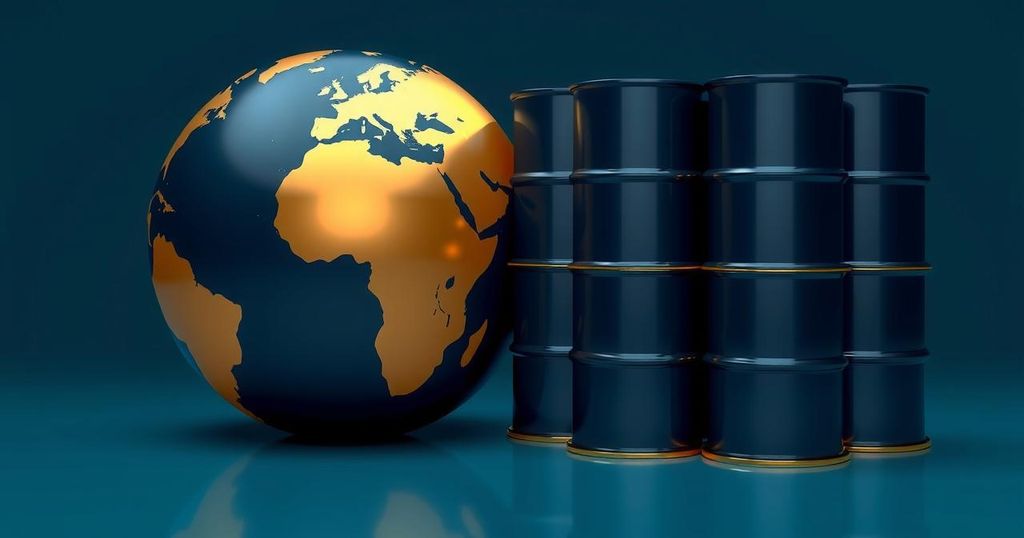U.S. Moves to Revoke Export Authorizations for Venezuela’s PDVSA Partners
The U.S. is set to revoke export authorizations for foreign partners of Venezuela’s PDVSA, affecting companies including Repsol, Eni, and Reliance. This decision, part of a broader sanctions regime, follows newly imposed tariffs, expected to decrease Venezuela’s oil exports further. The situation highlights shifting policies in U.S.-Venezuela relations as concerns around electoral integrity emerge.
The United States government is poised to revoke authorizations allowing foreign partners of Venezuela’s state oil company, PDVSA, to export oil and its byproducts. This decision comes from the administration of President Donald Trump, following a series of measures intended to enforce sanctions against Venezuela. Historically, previous administrations had granted these licenses to facilitate the export of Venezuelan oil to various global refineries, including those in Spain and India.
Companies affected by this decision include notable firms such as Repsol from Spain, Italy’s Eni, France’s Maurel & Prom, India’s Reliance Industries, and U.S. Global Oil Terminals. The majority of these companies have already ceased importing Venezuelan oil due to pressures from newly imposed secondary tariffs aimed at buyers of Venezuelan oil and gas. Current data suggests that Venezuelan oil exports have shown a decline since March.
In February, Venezuela managed to export approximately 910,000 barrels of oil per day, a slight increase from January’s figures. Past similar sanctions implemented in 2020 significantly reduced Venezuela’s oil production and exports, prompting PDVSA to rely on intermediaries for cargo allocation to markets such as China.
Recent steps taken by the Trump administration indicate a tightening of policies regarding Venezuela, including canceling key licenses essential for U.S. oil producers like Chevron in their operational activities in Venezuela. This development has heightened concerns surrounding the Venezuelan government’s potential migration issues and irregularities in the upcoming 2024 elections under President Nicolas Maduro, raising tensions between the U.S. and Venezuela.
Though the full implications regarding the operational wind-down for PDVSA’s partners remain uncertain, it has been noted that Secretary of State Marco Rubio has stated that the foreign oil companies would be provided with new guidance. President Maduro has denounced these sanctions as an “economic war,” demonstrating an ongoing contentious relationship with the United States.
The impending revocation of export authorizations for foreign partners of PDVSA underscores the U.S. government’s intensified sanctions against Venezuela. With major companies like Repsol, Eni, and Reliance impacted, Venezuelan oil exports are likely to face significant restrictions. Coupled with rising political tensions and concerns regarding election integrity, this situation illustrates the evolving dynamics of U.S.-Venezuela relations under the Trump administration.
Original Source: www.stabroeknews.com








Post Comment